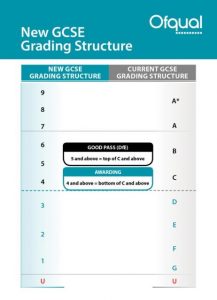Learning gaps are the difference between what a student is expected to have learnt by a specific point in their education and what they have actually learnt. For example, by the end of Year 2 most children are expected to have reached Gold band reading level. However, if a child is placed on Gold band reading books before they can read the Year 1 high frequency words and sounds then this will slow their progress further because they will be wasting time staring at pages they cannot read. In maths, if a young child is unable to count backwards they will struggle with subtraction later on.
Learning is like a child’s wooden block tower – each block builds upon the last. If a block is missing from the tower then it is hard for a student to progress.
What causes learning gaps?
Learning gaps are caused when a student is pushed on to the next level of learning before they’ve fully grasped what came before.
Learning gaps occur for all different reasons, for example:
- A student has missed a lesson due to illness or other circumstances.
- The student cannot focus in class due to bullying, difficult circumstances inside or outside school, or lack of confidence in the subject.
- The teacher didn’t cover the concept adequately for the student.
- The pace of the lesson was too fast for the student.
- The teacher thought the student understood the concept because they mechanically followed the steps but they didn’t really understand what they were doing.
- The student didn’t master the concept well enough to be able to apply it.
How are learning gaps identified?
If a student is struggling, a teacher or tutor will need to carry out a diagnostic assessment to find out whether there is a learning gap and the nature of the gap. For instance, if a child seems to be having difficulty in a particular area of maths a quiz is a useful starting point. Analysing the child’s maths books and talking to them directly will also help to pinpoint problems.
How should a learning gap be addressed?
The only way to address a learning gap is to specifically provide instruction to fill the gap. This could include revisiting activities and topics from previous units and previous years. Material may need to be presented in a different way than it was before bearing in mind the particular student’s preferred learning styles, and the pace of teaching may need to be slower. The student will need plenty of opportunity to ask questions in order to address misunderstandings. They will also need opportunities to apply their knowledge to a variety of situations so that understanding is secure.
At school, ideally the teacher would find time outside the classroom to provide individual instruction. In the classroom environment, the teacher would need to adapt the content of new material so that the student with a gap can access it as well as those who have a more through grounding. In maths, this could mean using smaller numbers and more straightforward problems so that the struggling student isn’t handicapped by their lack of understanding of prior material.
How long does it take to close a learning gap?
It depends upon the nature of the learning gap and how soon it is addressed. It can take a week or several years. The quicker a gap is identified the less of a knock-on effect there will be for the student. Once a student falls behind, it’s a difficult cycle to break.
How can TutorMyKids help?
One-to-one tutoring by a qualified teacher is the most effective way of addressing a learning gap. A private tutor can adapt teaching to meet a student’s specific needs. They can personalize instruction to suit a particular student’s level, pace and unique learning styles – something that’s very difficult for a teacher in a busy classroom to achieve.
Equally importantly, students tend to be more comfortable to talk to a tutor about their difficulties than they are to draw attention to themselves in a classroom. By talking they become partners in their learning, asking the questions necessary to further their understanding.
At TutorMyKids we know that learning gaps should be addressed as quickly as possible through regular and rigorous teaching. For fast, effective tuition call us today on 01223 858421 or email: hello@tutormykids.co.uk




